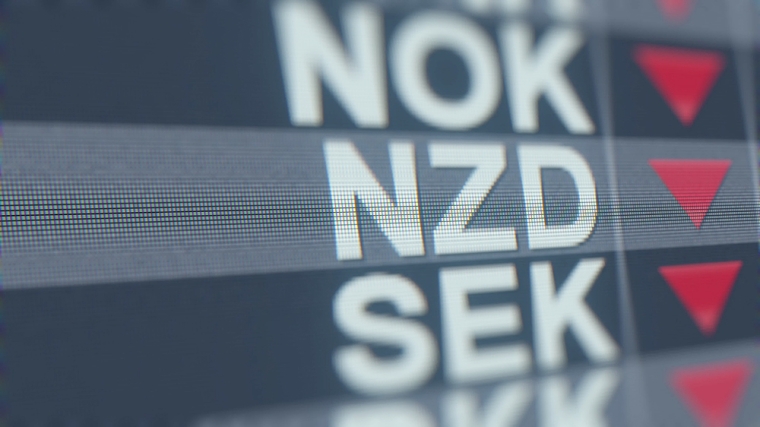
Markets have traded with a more cautious tone overnight without any obvious driver, seeing modest falls in US equities and modestly higher US Treasury yields. The USD is broadly stronger and the NZD has underperformed, heading down towards support at 0.58 and with fresh multi-year lows on NZD/AUD and NZD/EUR crosses.
Newsflow has been light overnight. The US S&P500 is currently down 0.3%, on track for a consecutive daily fall, the market being well overdue for a breather after its record-breaking run. The Euro Stoxx 600 index closed down 0.2%.
US Treasury yields pushed higher from early in the European trading session, with levels sustained following unusually strong home sales data. New US house sales leapt more than 20% in August, which looks implausibly large against a backdrop of broadly weaker housing market data but could be explained by greater incentives offered by builders to offload high inventories. The unusually large jump also coincided with the 30-year mortgage rate falling to the lowest level in nearly a year. The 10-year Treasury yield is currently 4.14%, up 4bps for the day and the curve has shown a roughly parallel shift higher.
In other economic news, Germany’s IFO business survey for September showed the expectations index falling nearly 2pts to 89.7 against the consensus expecting a small lift, and breaking a run of more positive figures. The data suggest a patchy German economic recovery.
Oil prices are up 2½%, with Brent crude trading at a three-week high above USD69 per barrel. Some of the move has been attributed to more hawkish comments by Trump regarding Russia after he said Ukraine could win back all of its territory from Russia, raising concerns about possible disruption to Russia oil supplies.
The USD also trended higher from early in the European trading session and dollar indices are up 0.5-0.6% for the day. The NZD has underperformed and has been flirting around 0.5810, just above key support of 0.5800, the low reached following the RBNZ’s dovish pivot in August.
The AUD and Australian rates jumped higher after Australia’s monthly CPI report was towards the higher end of market expectations, with annual inflation of 3.0% in August. The details on housing and services weren’t market-friendly and these represent an upside risk to the inflation outlook, with underlying inflation tracking higher than RBA forecasts. The market lost confidence in the prospect of another rate cut this year and some economists changed their rate calls. The market now isn’t fully pricing another rate cut until February.
NZD/AUD fell to an overnight low just under 0.8820, its lowest level in nearly three years, extending losses seen over the past month. In 2022 the intraday low reached was just over 0.87 and that is the next key support level. The lower cross rate is entirely justifiable in light of the collapse in NZ-Australian rate spreads (see comment below).
Falls in NZD/EUR and NZD/GBP have been small, but the former has fallen to a fresh 15-year low around 0.4950. NZD/JPY is flat for the day around 86.5.
Dr Anna Breman, the First Deputy Governor of Sweden’s central bank, has been appointed as the new Governor of the RBNZ for a term of five years beginning 1 December. She appears to have solid credentials to lead the RBNZ and there are no immediate implications for current monetary policy, with Governor Hawkesby overseeing the next two OCR reviews before he departs from the bank.
The domestic rates market showed only small movements, with NZGB and swap yields flat to 2bps lower across the curve, with a flattening bias out to 10-years maturity. The NZ-Australian 2-year swap differential, which was positive as recently as July, has fallen to minus 74bps, the lowest since 2012. Overnight, the Australian 10-year bond future is up 3bps in yield terms, modestly extending the post-CPI move.
On the economic calendar, only second-tier US data are released, including trade, durable goods orders, jobless claims and home sales.
Daily exchange rates
Select chart tabs
Jason Wong is the Senior Markets Strategist at BNZ Markets.

We welcome your comments below. If you are not already registered, please register to comment
Remember we welcome robust, respectful and insightful debate. We don't welcome abusive or defamatory comments and will de-register those repeatedly making such comments. Our current comment policy is here.